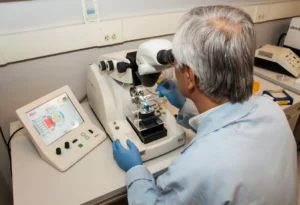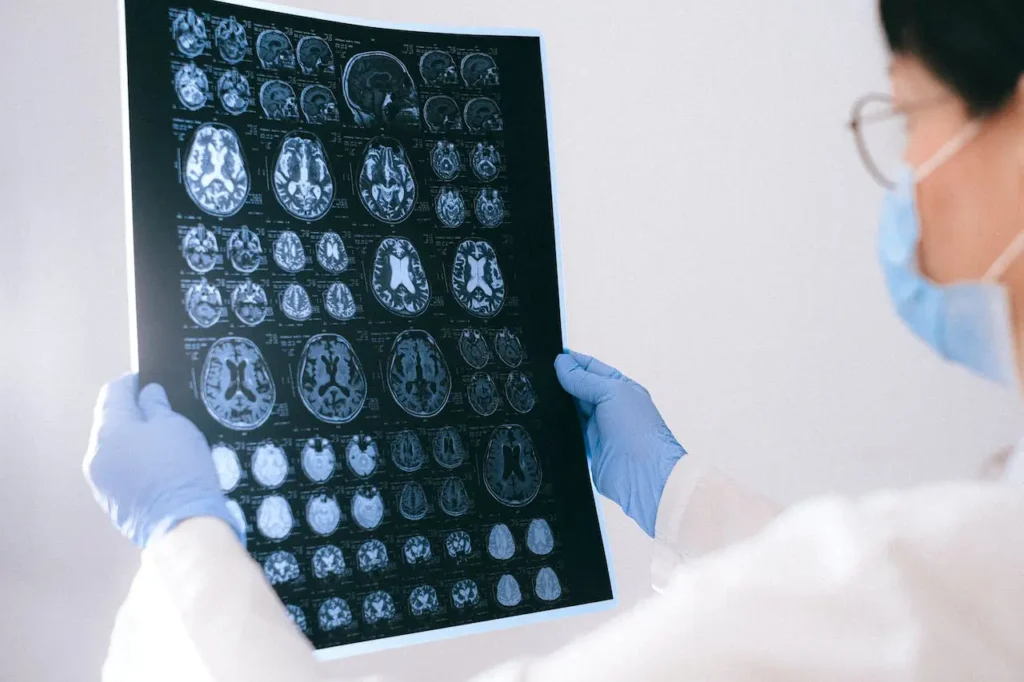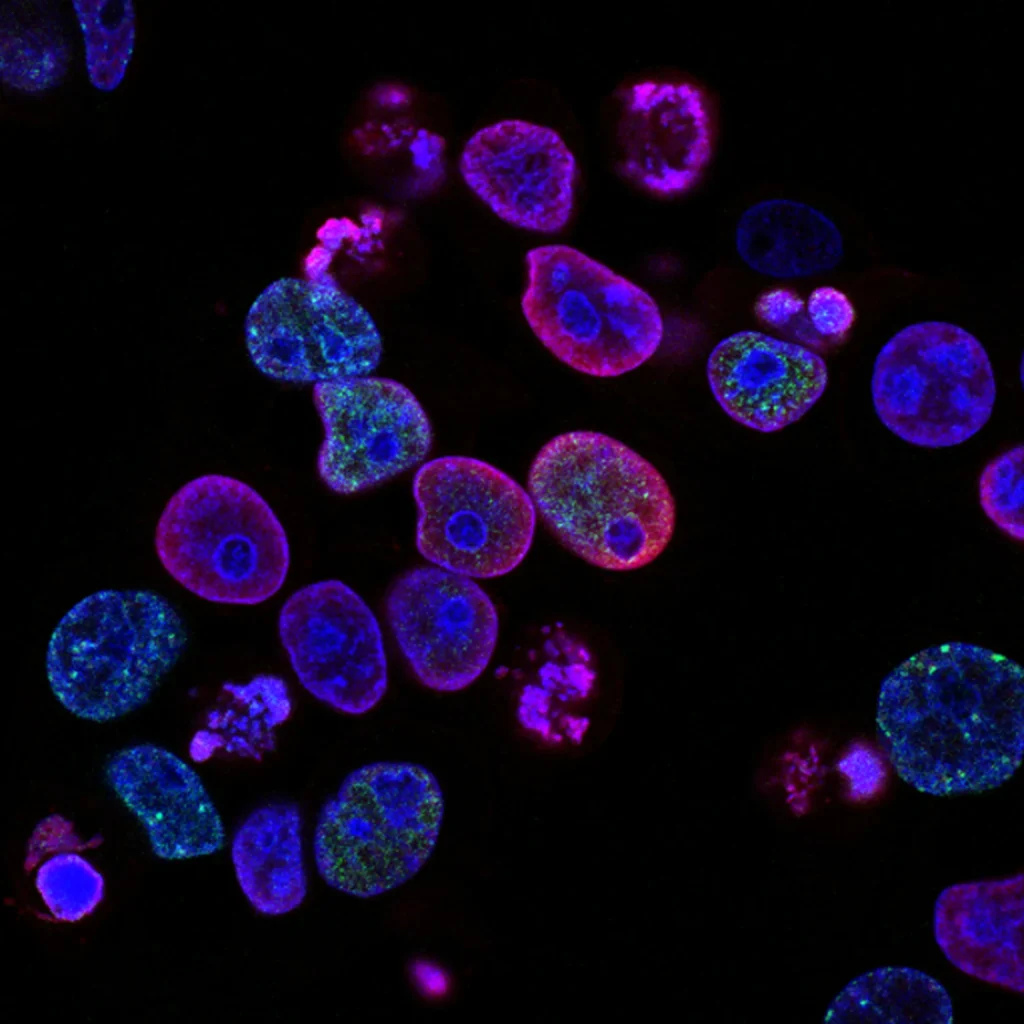Thyroid Cancer Symptoms, Resources and Caregiver Tips

- Introduction to thyroid cancer
- Recognizing thyroid cancer symptoms
- How long can you have thyroid cancer without knowing?
- Importance of early detection and diagnosis
- Caregiver tips for supporting thyroid cancer patients
- Understanding hyperthyroidism in the elderly
- Supporting seniors with hypothyroidism
- Nutrition recipes for individuals with thyroid cancer
- Connecting with thyroid disorder support groups for caregivers
- Conclusion
- Frequently Asked Questions (FAQs)
Introduction to thyroid cancer
This post may contain affiliate links, meaning I may earn a commission if you make a purchase, at no extra cost to you. I only recommend products I trust. Thank you for your support.
Thyroid cancer is a relatively rare but potentially life-threatening disease that affects the thyroid gland, a small butterfly-shaped gland located in the front of the neck. This gland plays a crucial role in regulating various bodily functions, including metabolism and hormone production.
When cancerous cells develop within the thyroid gland, it can lead to the development of thyroid cancer.There are several types of thyroid cancer, with the most common being papillary thyroid cancer, medullary thyroid cancer, and anaplastic thyroid cancer.
Each type differs in terms of its characteristics, progression, and treatment options. It is important to understand the distinctions between these types to recognize the symptoms and seek appropriate medical attention.
Papillary Thyroid Cancer
Papillary Thyroid Cancer is the most prevalent type, accounting for approximately 80% of all thyroid cancer cases. It typically affects individuals between the ages of 30 and 50 and has a high survival rate.
Papillary thyroid cancer often presents as a painless lump or nodule in the thyroid gland and may be accompanied by swollen lymph nodes in the neck. Papillary thyroid cancer exhibits distinctive characteristics that aid in its identification and management.
This slow-growing cancer is associated with specific genetic mutations, such as BRAF and RET, contributing to its development. While papillary thyroid cancer is generally linked to favorable outcomes, a history of radiation exposure, especially during childhood, is considered a potential risk factor.
Diagnosis of papillary thyroid cancer commonly involves fine-needle aspiration (FNA) biopsy and ultrasound imaging, enabling healthcare professionals to confirm the presence of the painless lump or nodule in the thyroid gland.
Medullary Thyroid Cancer
Medullary thyroid cancer is rarer, comprising about 4% of all thyroid cancer cases. It arises from the C cells of the thyroid gland and is often hereditary.
Medullary thyroid cancer can produce excessive amounts of calcitonin, a hormone that regulates calcium levels in the blood. Symptoms may include a lump in the neck, difficulty swallowing, and hoarseness.
Recognizing symptoms of medullary thyroid cancer is vital, and individuals may experience indications such as a noticeable lump in the neck, difficulty swallowing, and hoarseness.
Due to its hereditary nature, genetic testing and counseling may be considered for individuals with a family history of medullary thyroid cancer.
Prompt diagnosis of medullary thyroid cancer and tailored treatment plans, often involving surgery and ongoing monitoring, are essential for effectively managing this rarer thyroid cancer variant.
Anaplastic Thyroid Cancer
Anaplastic thyroid cancer is the least common, but also the most aggressive and fastest-growing form of thyroid cancer. It typically affects older individuals and has a poor prognosis. Symptoms may include a rapidly growing mass in the neck, difficulty breathing or swallowing, and voice changes.
Due to its aggressive nature, Anaplastic Thyroid Cancer requires prompt and comprehensive medical attention. Treatment approaches often involve a combination of surgery, radiation therapy, and in some cases, targeted therapies.
However, given its aggressive behavior, the prognosis for anaplastic thyroid cancer tends to be challenging, emphasizing the critical importance of early detection and intervention.
Recognizing thyroid cancer symptoms
Early detection of thyroid cancer is crucial for successful treatment. While some individuals may experience no symptoms, others may exhibit certain signs that indicate the presence of thyroid cancer.
It is important to be aware of these thyroid cancer symptoms and consult a medical professional if they persist or worsen.
Here are some common symptoms associated with thyroid cancer:
- Visible Neck Lump: A painless lump or swelling in the neck is one of the most noticeable thyroid cancer symptoms. It may be present for an extended period without causing any pain or discomfort.
- Changes in Voice: Hoarseness or other changes in voice quality can indicate the presence of thyroid cancer. This occurs when the tumor affects the vocal cords or puts pressure on the nerves responsible for voice production.
- Difficulty Swallowing or Breathing: As thyroid cancer progresses, it can cause difficulty in swallowing or breathing. This occurs when the tumor grows larger and starts to press against the esophagus or windpipe.
- Persistent Cough: A persistent cough that does not go away, accompanied by other symptoms such as blood-tinged sputum or chest pain, may be a sign of thyroid cancer that has spread to the lungs.
- Fatigue and Weight Changes: Unexplained fatigue, sudden weight loss or gain, and changes in appetite can be indicative of thyroid cancer affecting the body’s metabolism.
If you experience any of these symptoms, it is essential to consult a healthcare provider. They can perform a thorough examination, order diagnostic tests, and provide an accurate diagnosis.
How long can you have thyroid cancer without knowing?
Thyroid cancer can often go undetected for an extended period, as it may not cause noticeable symptoms in its early stages.
The length of time an individual can have thyroid cancer without knowing varies from person to person.
Some individuals may remain unaware for months, while others may live with undiagnosed thyroid cancer for years. Several factors can contribute to the delayed detection of thyroid cancer, such as the type of cancer, the rate of tumor growth, and individual variations in symptom manifestation.
Additionally, individuals with smaller or slower-growing tumors may not experience symptoms until the cancer reaches an advanced stage. Regular health check-ups, self-examinations, and awareness of potential symptoms can aid in the early detection of thyroid cancer.
It is essential to remain vigilant and seek medical attention if any suspicious symptoms arise.
Importance of early detection and diagnosis
Early detection of thyroid cancer significantly increases the chances of successful treatment and improved patient outcomes.
Timely diagnosis allows for prompt initiation of appropriate treatment options, which may include surgery, radiation therapy, or targeted drug therapies.

Early-stage thyroid cancer is often easier to treat and may require less aggressive interventions. It can help prevent the cancer from spreading to other parts of the body and minimize the need for more invasive procedures.
Regular screenings, especially for individuals with a family history of thyroid cancer or other risk factors, are essential for early detection.
By recognizing the symptoms, seeking medical attention promptly, and undergoing regular check-ups, individuals can take control of their health and increase the likelihood of a positive prognosis.
Caregiver tips for supporting thyroid cancer patients
Being a caregiver for someone with thyroid cancer can be both challenging and rewarding.
Here are some tips to provide effective support and care for thyroid cancer patients:
- Educate yourself: Take the time to learn about thyroid cancer, its treatment options, and potential side effects. This knowledge will enable you to better understand and assist the patient throughout their journey.
- Offer emotional support: A cancer diagnosis can be emotionally overwhelming. Be a source of comfort and understanding for the patient. Encourage open communication and provide a listening ear when they need to express their fears and concerns.
- Assist with appointments and medication management: Help the patient keep track of their medical appointments, medications, and treatment schedules. Offer to accompany them to appointments and take notes to ensure important information is not overlooked.
- Provide practical assistance: Offer assistance with daily activities such as meal preparation, house chores, and transportation to medical appointments. Small gestures can make a significant difference in the patient’s overall well-being.
- Encourage a healthy lifestyle: Support the patient in maintaining a balanced diet, engaging in regular physical activity (if approved by their healthcare provider), and managing stress. These lifestyle factors can positively impact their overall health and well-being.
Remember, each patient’s needs and preferences may vary. It is essential to communicate openly with the patient and adapt your caregiving approach accordingly.
Understanding hyperthyroidism in the elderly
Hyperthyroidism is a condition characterized by an overactive thyroid gland, resulting in the excessive production of thyroid hormones.
While it can affect individuals of any age, it is especially important to understand its impact on the elderly population.
- Symptoms: Hyperthyroidism in the elderly may present with atypical symptoms, making it challenging to diagnose. Common signs include weight loss, increased appetite, fatigue, irritability, and heat intolerance. However, older adults may attribute these symptoms to the normal aging process, delaying proper diagnosis.
- Increased Risks: Elderly individuals with hyperthyroidism are at a higher risk of developing complications such as atrial fibrillation, osteoporosis, and heart failure. It is crucial to monitor their thyroid hormone levels regularly and adjust medication doses accordingly.
- Treatment Considerations: Treatment options for hyperthyroidism in the elderly may differ from those for younger individuals. Medications, radioactive iodine therapy, and surgery are potential treatment approaches. However, the choice of treatment should be tailored to the patient’s overall health and individual needs.
- Regular Monitoring: It is essential for healthcare professionals to closely monitor elderly patients with hyperthyroidism to ensure proper management and prevent potential complications. Routine check-ups, thyroid function tests, and periodic evaluations of medication dosages are vital components of their care.
Some common signs of hyperthyroidism in the elderly include:
- Weight loss
- Increased appetite
- Fatigue
- Restlessness
- Heart palpitations
- Heat intolerance
- Frequent bowel movements
- Muscle weakness
If an elderly individual exhibits these symptoms, it is crucial to consult a healthcare provider for a comprehensive evaluation.
Prompt diagnosis and management of hyperthyroidism can help alleviate symptoms and prevent potential complications.
Supporting seniors with hypothyroidism
Hypothyroidism is a condition characterized by an underactive thyroid gland, resulting in insufficient production of thyroid hormones. It is more prevalent in older adults and can significantly impact their quality of life.
Here are some tips for supporting seniors with hypothyroidism:
- Encourage regular medical check-ups: Regular monitoring of thyroid hormone levels is essential for seniors with hypothyroidism. Encourage them to attend scheduled appointments and follow their healthcare provider’s recommendations.
- Assist with medication management: Help seniors stay on top of their medication regimen by organizing their medications, setting reminders, and ensuring they take their prescribed doses at the right time. This can help maintain optimal thyroid hormone levels.
- Promote a healthy diet: A balanced diet rich in nutrients can support thyroid function and overall well-being. Encourage seniors to consume foods high in iodine, selenium, and zinc, as these nutrients are important for thyroid health.
- Support physical activity: Regular exercise can benefit seniors with hypothyroidism by boosting metabolism, improving mood, and maintaining muscle strength. Encourage them to engage in activities suitable for their physical capabilities.
- Provide emotional support: Hypothyroidism can cause mood swings, depression, and fatigue. Be empathetic and offer emotional support to seniors experiencing these symptoms. Encourage them to engage in activities they enjoy and maintain social connections.
By offering support and implementing lifestyle modifications, caregivers can help seniors manage their hypothyroidism and improve their overall well-being.
Nutrition recipes for individuals with thyroid cancer
Maintaining a healthy and balanced diet is crucial for supporting thyroid health. Certain nutrients play a pivotal role in the optimal functioning of the thyroid gland.

Here are some essential nutrients and their food sources that can support thyroid health:
- Iodine: Iodine is a key nutrient required for the production of thyroid hormones. Good sources of iodine include seaweed, fish, shrimp, dairy products, and iodized salt.
- Selenium: Selenium is an essential mineral that aids in the conversion of inactive thyroid hormone (T4) to its active form (T3). Brazil nuts, seafood, eggs, and legumes are excellent sources of selenium.
- Zinc: Zinc is involved in the regulation of thyroid hormone synthesis and metabolism. Foods rich in zinc include oysters, beef, chicken, pumpkin seeds, and lentils.
- Vitamin D: Vitamin D deficiency has been associated with an increased risk of autoimmune thyroid diseases. Natural sources of vitamin D include sunlight, fatty fish, fortified dairy products, and egg yolks.
- Omega-3 fatty acids: Omega-3 fatty acids possess anti-inflammatory properties and may help reduce inflammation associated with certain thyroid disorders. Fatty fish, flaxseeds, chia seeds, and walnuts are good sources of omega-3 fatty acids.
While incorporating these nutrients into the diet can be beneficial, it is important to consult a healthcare provider or a registered dietitian for personalized dietary recommendations tailored to individual needs.
Connecting with thyroid disorder support groups for caregivers
Caring for someone with a thyroid disorder can be emotionally and physically demanding. Connecting with support groups can provide caregivers with valuable resources, advice, and a sense of community.
Here are some online support groups for caregivers of individuals with thyroid disorders:
- Thyroid Cancer Survivors’ Association: The Thyroid Cancer Survivors’ Association (ThyCa) is a non-profit organization dedicated to providing support, education, and resources for individuals affected by thyroid cancer. They offer online support groups, educational materials, and an annual conference.
- American Thyroid Association: The American Thyroid Association (ATA) is a professional medical society that provides resources and support for individuals with thyroid disorders. They offer educational materials, webinars, and a directory of healthcare professionals specializing in thyroid diseases.
- Thyroid Foundation of Canada: The Thyroid Foundation of Canada (TFC) is a non-profit organization that aims to support individuals affected by thyroid disorders. They provide educational resources, support groups, and a helpline for individuals seeking assistance.
These support groups offer platforms for caregivers to share experiences, ask questions, and access educational materials. Engaging with others who have similar experiences can provide emotional support and practical guidance throughout the caregiving journey.
You may also want to explore these articles about cancer caregiving tips and resources, comfort care, diabetic meal plans, therapy dogs for emotional support, and respite care options to address the physical and emotional needs associated with thyroid cancer.
Are you searching for a compassionate caregiver with experience in caring for diabetic patients, feel free to contact me here or you find a live in caregiver in your area.
Conclusion
Thyroid cancer is a silent threat that requires proactive awareness and early detection. By recognizing thyroid cancer symptoms, understanding the different types of thyroid cancer, and seeking prompt medical attention, individuals can increase their chances of successful treatment and improved outcomes.
Caregivers play a crucial role in supporting individuals with thyroid cancer. By educating themselves, providing emotional and practical support, and connecting with support groups, caregivers can navigate the challenges of caregiving and enhance the overall well-being of their loved ones.
Nurturing thyroid health through proper nutrition and lifestyle modifications can also play a significant role in maintaining optimal thyroid function. By incorporating essential nutrients and engaging in healthy habits, individuals can support their thyroid health and overall well-being.
Remember, early detection, timely intervention, and a supportive network are key components in the battle against thyroid cancer.
7 Day Meal Plan for Gastritis Relief: A Caregiver’s Guide
Explore these articles about caregiver coping strategies that address burnout and senior activities that boost happiness.
Frequently Asked Questions (FAQs)
What are the common symptoms of thyroid cancer?
Common thyroid cancer symptoms include persistent hoarseness or voice changes, difficulty swallowing or breathing, swollen lymph nodes in the neck, a lump or nodule in the neck, persistent cough, chronic neck pain, fatigue, and unexplained weight loss.
How long can someone have thyroid cancer without knowing?
The length of time someone can have thyroid cancer without knowing varies from person to person. Some individuals may remain unaware for months, while others may live with undiagnosed thyroid cancer for years. Regular health check-ups, self-examinations, and awareness of potential symptoms can aid in early detection.
How important is early detection and diagnosis of thyroid cancer?
Early detection of thyroid cancer significantly increases the chances of successful treatment and improved patient outcomes. Timely diagnosis allows for prompt initiation of appropriate treatment options and may prevent the cancer from spreading to other parts of the body.
How can caregivers support individuals with thyroid cancer?
Caregivers can provide support by educating themselves about thyroid cancer, offering emotional support, assisting with appointments and medication management, providing practical help with daily activities, and encouraging a healthy lifestyle.
Are there support groups for caregivers of individuals with thyroid disorders?
Yes, there are support groups available online, such as ThyCa, American Thyroid Association, and Inspire Thyroid Cancer Support Community. These groups offer resources, advice, and a sense of community for caregivers of individuals with thyroid disorders.
Note: This article is for informational purposes only and should not be taken as medical advice. If you or a loved one is diagnosed with thyroid cancer, reach out to support groups and healthcare professionals to access the information and assistance you need.




